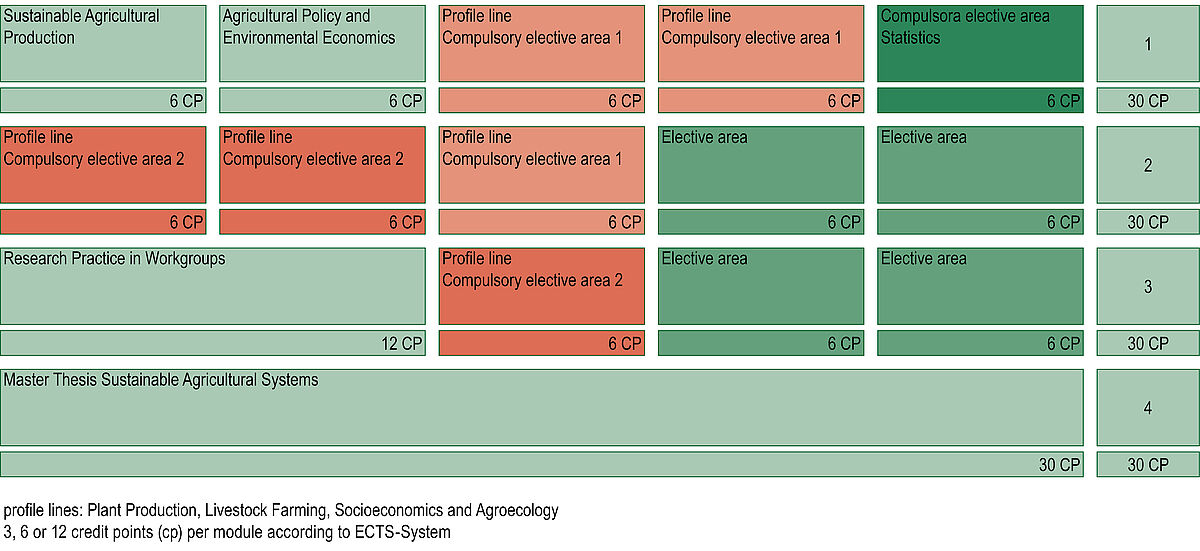Study structure
- The modularised attendance study programme Sustainable Agricultural Systems is divided into compulsory, compulsory elective and elective modules and is offered in four profile lines. Students must choose one of the profile lines at the beginning of their studies.
- In the compulsory area, students acquire key qualifications in sustainability, agricultural policy and environmental economics as well as statistics. To this end, the first two modules in the compulsory area and one module in the compulsory elective area of statistics must be completed.
- The study programme is supplemented by an elective area that offers students the opportunity to further qualify themselves within the profile line or to place their education on a broader basis.
- In the module "Research Practice in the Working Groups" and in the preparation of the Master's thesis, students actively participate in the research life of the individual professorships.
Teaching and learning forms

The programme-specific examination and study regulations of the Master's programme Sustainable Agricultural Systems specify which modules must be completed in which semester (see study schedule). For this purpose, students receive a timetable for each semester in which the courses of all modules of the respective semester are scheduled.
The contents of the degree programme are taught in different courses. The types of courses are characterised by the use of different forms of teaching and learning.
Apart from the types of courses mentioned in the framework examination regulations, no other types of courses are used. The list shows the usual types of courses:
Examinations
Modules are completed with an examination at the end of the semester. The examination can take the form of a written exam, an oral exam or in another way (e.g. term paper and seminar presentation).
According to the study and examination regulations, academic achievements to be made in a module can be determined as a prerequisite for admission to the module examination. Prerequisites for examinations can be: regular participation in seminars, exercises, practicals and excursions. Furthermore, assignments, tests, protocols of experiments, protocols of results, reports/documentation (experimental plan, results document for literature research), papers/presentations can be determined as prerequisite examinations.
If there is a choice of several preliminary examinations, the performances to be rendered will be announced in the second week of the course at the latest.
At the Faculty of Agricultural and Environmental Sciences, the examination period of a semester is divided into two examination phases. The first examination phase of the examination period of a semester takes place in the first two weeks after the end of lectures. The second examination phase of the examination period extends to two weeks before the start of the new semester.




